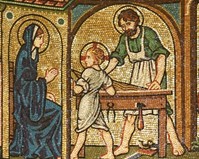Prudence is the intellectual virtue by which a human being recognizes in any matter at hand what is good and what is evil. Prudence is the first of the cardinal virtues because it is the ability to look at a concrete situation and know what ought to be done and it is the ability to make right judgments. Prudence gives us the knowledge of what must be done, when it must be done, and how it must be done. In this sense, prudence is that which enables a person to plan, choose and prepare suitable means for the avoidance of any evil.
In the words of Russell Shaw, “the virtue of prudence means following God’s Will despite the earthly cost” while Thomas Aquinas said that “Prudence is widely misunderstood today as caution, even timidity and no means a character trait to be admired” and St. Teresa of Avila also said that Prudence helps us to seek perfection. The question therefore, is, what is Prudence to us and what is our perception of the virtue of Prudence?
To further corroborate the words of Thomas Aquinas, people misunderstand Prudence hence, it is proper to state that Prudence is not timidity, or an avoidance of all danger or cowardice, lack of initiative, self-preservation, never spending any money, or an excessive focus on manners. “Prudence is the virtue that disposes practical reason to discern the truth in every circumstance and to choose the right means of achieving it”.
For us Christians, Prudence should be more than just practicality and good sense, it should be linked to Love; that is, making a right distinction between what helps us towards God and what might hinder us from reaching God.

Looking at Saint Mark’s account of the early hours on the Sunday of the Resurrection. We are told that Mary Magdalene and the other women who had brought spices to anoint Jesus’s body set out early in the morning for the tomb. They looked at each other and wondered who will help roll out the stone on the tomb (Mark 16:3) Yes! they did not have a solution for rolling out the stone, but the Love for Jesus moved these women to the correct and prudent decision, because of the Love for Jesus, they didn’t see the difficulties facing them nor did they envisage any obstacle in removing the stone. Even though, they might not be able to remove the stone on their own, they continued walking towards the tomb.
We are all aware of the story of St. Joseph and Mary, after he found out that his fiancée was pregnant, he did not utter a word to anybody nor did he divorce her according to the Jewish tradition, No! he simply kept quiet and went into prayer for spiritual direction. We know how it ended. Any other man would have been very angry, exposed Mary and probably cancelled the wedding. The act of St. Joseph is worthy of emulation because he acted out of Love for Mary and God and also with Prudence. That is why we are encouraged to emulate St. Joseph because he was a Man of Silence and Virtue.
The Prudence of St. Joseph is part of our Catholic Faith. It is especially shown in his remarkable practice of silence. Of course, St. Joseph talked, yet the Gospels do not record a single word he spoke, no doubt to teach us that if we wish to practice the virtue of Prudence, we must practice the charity of silence. We are to be silent when others want us to speak, and we practice charity through self-control. Part of living the virtue of Prudence is to be silent when it is clearly necessary to do something and not talk about it. So, in whatever we do, we should always put the feeling of others into consideration. We should not be hasty at condemning or be quick at judging people rather, we should let go and pray for the person or those we feel have hurt us so deeply.

St, Joseph is such an incredible example to us especially, for the men who are boys before becoming men. This is where our roles as mothers come to play. We need to encourage our boys as they grow up to emulate the virtue of Prudence which St. Joseph exhibited during his time. St Joseph was a man of many dimensions, he was not merely a saint, nor merely Mary’s husband and not just the most chaste spouse but also a man of prayer indeed and a model of Father for families.





2 Comments